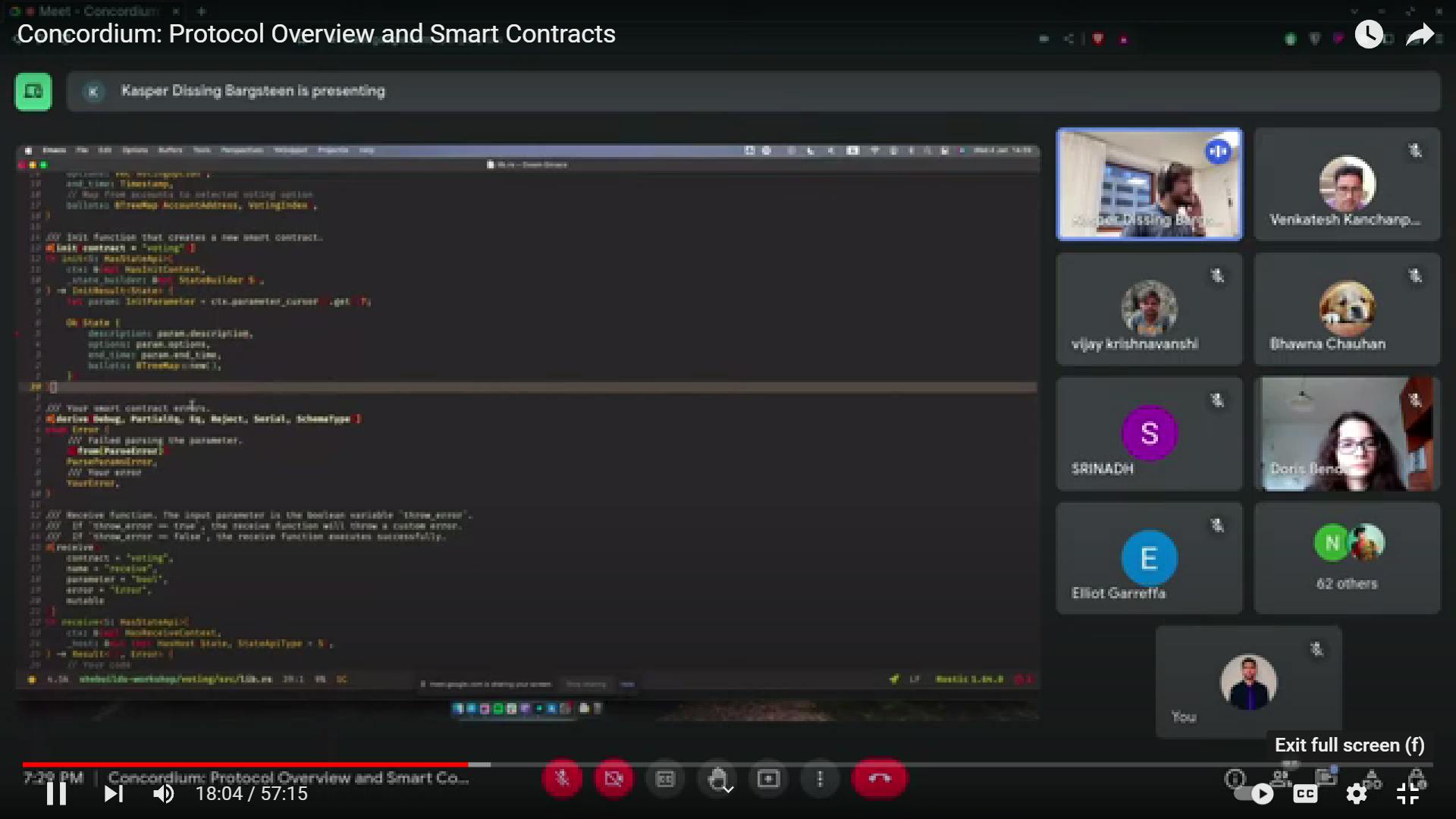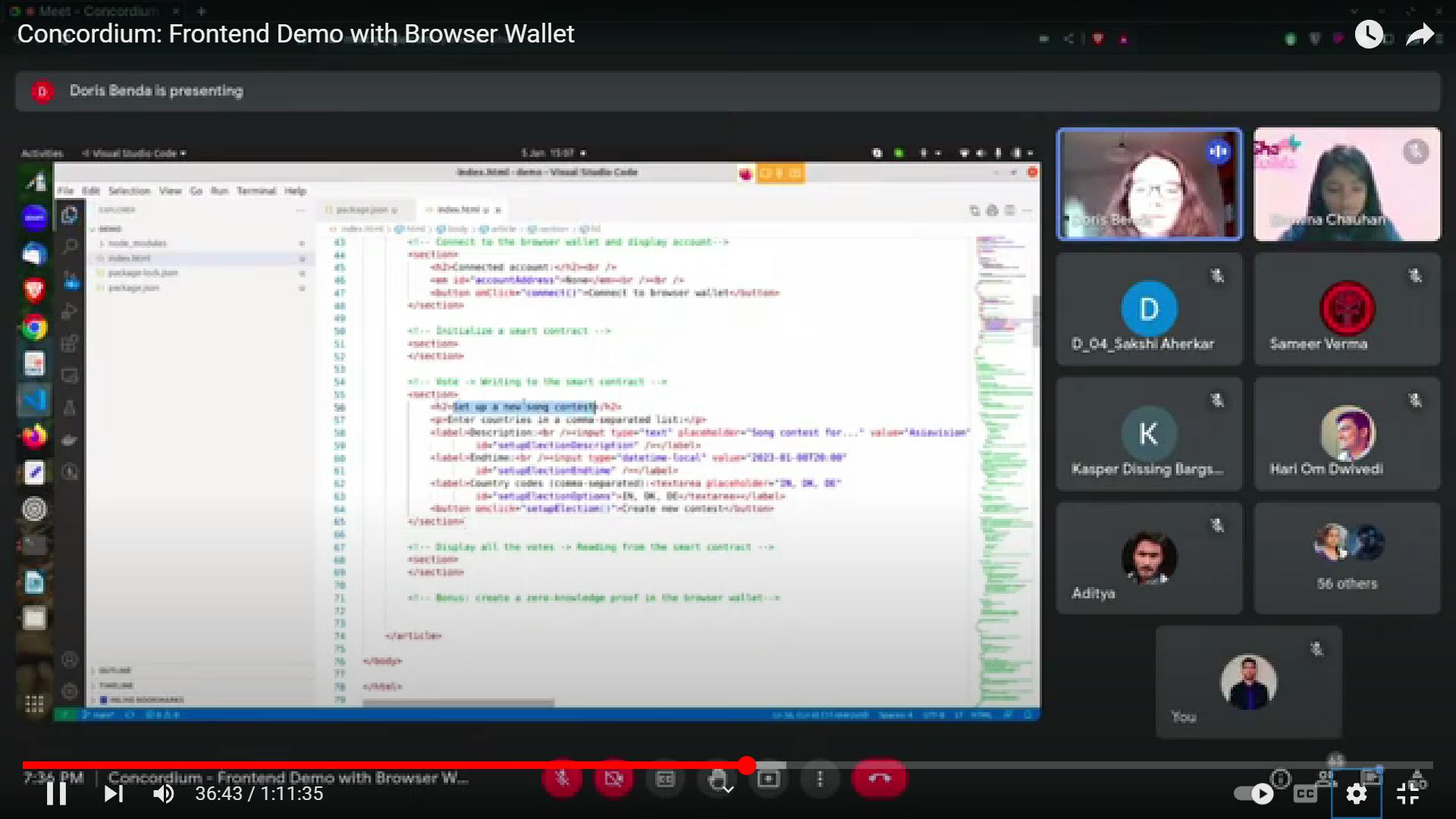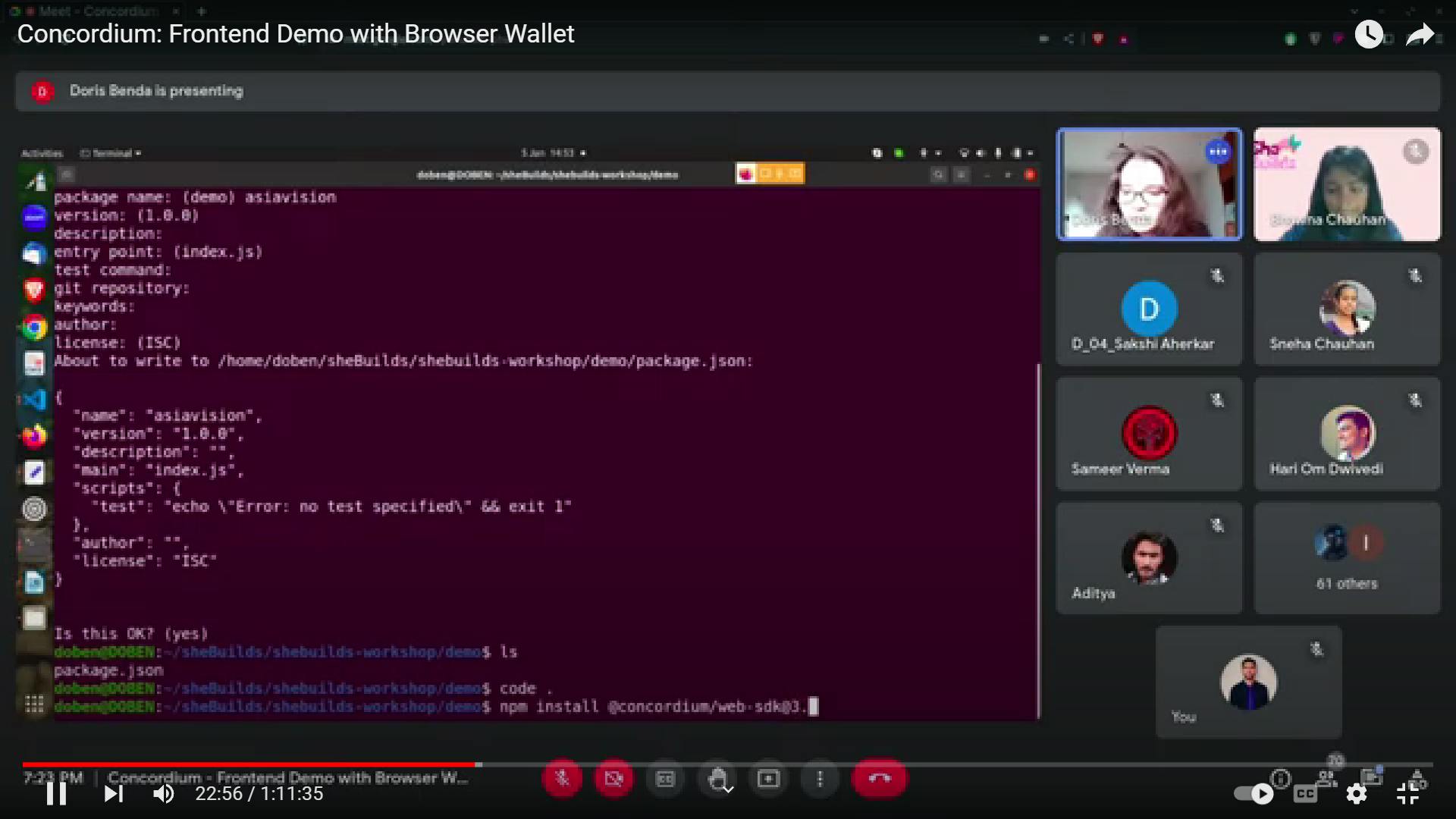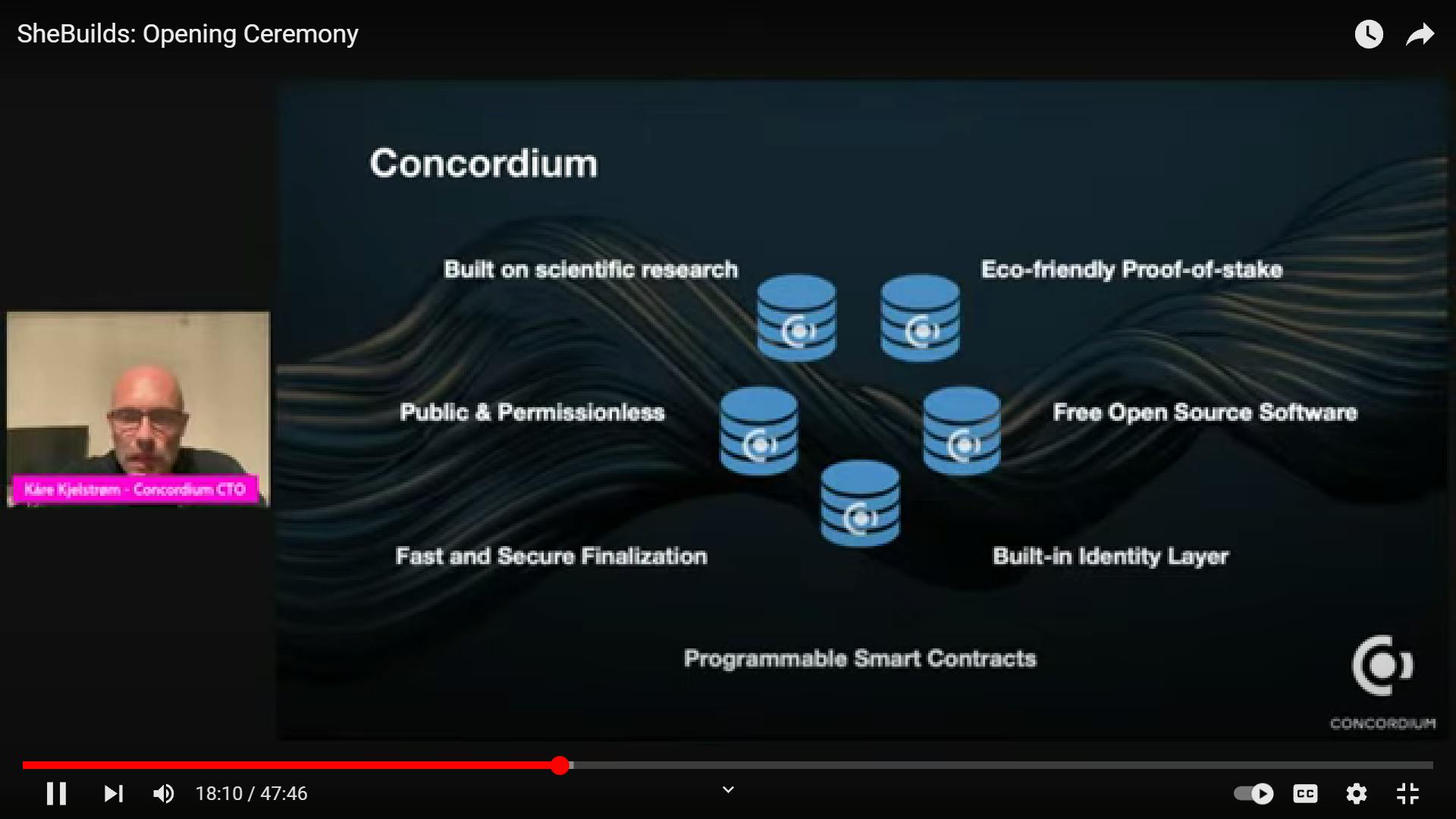Exploring the World of Smart Contracts and DApps with Concordium.
#hashnode #shebuilds #concordium #smartcontracts #decentralizedapps
I recently had the opportunity to attend a series of workshops hosted by Concordium, Concordium is a public, layer 1 blockchain that aims to provide a balance between privacy and accountability through its ID layer. The ID layer is a key feature of Concordium that allows users to have a unique digital identity that is linked to their real-world identity, while still preserving their privacy. This makes Concordium well-suited for use cases where accountability is important, such as in financial transactions or supply chain management.
The workshops were likely focused on educating developers on the various aspects of blockchain development, including the development of smart contracts and decentralized applications (DeApps). Smart contracts are self-executing contracts with the terms of the agreement between buyer and seller being directly written into lines of code. They are typically deployed on blockchain platforms and are designed to automatically execute the terms of the contract when certain conditions are met. DeApps, on the other hand, are decentralized applications that run on a decentralized network of computers, rather than on a single central server. This makes them more resistant to censorship and fraud, and they are often used in applications such as peer-to-peer marketplaces and voting systems.
Overall, the goal of the workshops was likely to provide developers with the knowledge and skills necessary to build applications on the Concordium blockchain and to help them understand the unique features and capabilities of the platform.
On the first day of the workshops, Kasper from Concordium gave a presentation on blockchain development and provided an overview of the Concordium network. He explained how the network functions and the various features it offers, such as scalability and privacy.
Kasper then demonstrated a voting smart contract that he had created. The smart contract allowed participants to cast their votes anonymously and have the results recorded on the blockchain. This provided a secure and transparent way for the participants to vote, as the results could not be altered or tampered with once they were recorded on the blockchain.
Overall, the presentation and demonstration by Kasper provided a valuable learning experience for the workshop participants and gave them a better understanding of the capabilities and potential of blockchain technology.
Concordium: Protocol Overview and Smart Contracts

In the second day of the workshops, Doris led a session on the development of decentralized applications, or DeApps, on smart contracts. Depp's are applications that run on a decentralized network, such as a blockchain, rather than a single computer or server. This means that they are distributed across a network of computers, making them more resistant to censorship, fraud, and other types of interference.
During the session, Doris explained the various possibilities for creating DeApps using smart contracts. A smart contract is a self-executing contract with the terms of the agreement between buyer and seller being directly written into lines of code. The code and the agreements contained therein are stored and replicated on a blockchain network.
Doris showed us how to use different programming languages and tools, such as Solidity and Truffle, to create DeApps that can facilitate a wide range of functions, including financial transactions, supply chain management, and voting systems. We also learned about the various ways in which DeApps can be deployed, such as on the Ethereum blockchain or a private blockchain.
Overall, it was an exciting and informative session that gave us a deeper understanding of the capabilities and potential of DeApps and smart contracts.
Concordium: Frontend Demo with Browser Wallet


On the third day, we had the chance to hear from the CEO of Concordium, who gave us a glimpse into the future of the company and the numerous projects that could be built using the Concordium platform.
Concordium is a public, decentralized, and permissionless blockchain platform that is designed to be fast, secure, and scalable. It uses a new proof-of-stake (PoS) consensus algorithm called "Rapid Proof" that allows it to process transactions quickly and with low fees. The platform also includes built-in privacy features that allow users to transact securely and privately.
As for the projects that could be built using the Concordium platform, there are many possibilities. For example, the platform could be used to build decentralized applications (dApps) for a wide range of use cases, such as supply chain management, voting systems, and prediction markets. It could also be used to create decentralized finance (Defi) applications, such as stablecoins, lending platforms, and decentralized exchanges (DEXs). Additionally, the platform could be used to build identity solutions, allowing users to securely and privately verify their identities online.
Overall, the Concordium platform has the potential to enable the development of many innovative and transformative projects in the blockchain space.

In conclusion, the workshops provided by Concordium were a valuable learning experience for me as I entered the world of blockchain development. I appreciate the comprehensive and engaging nature of the program, and I feel more confident in my abilities as a result of participating in these workshops. Thank you, Concordium, for the opportunity to learn and grow in this field.